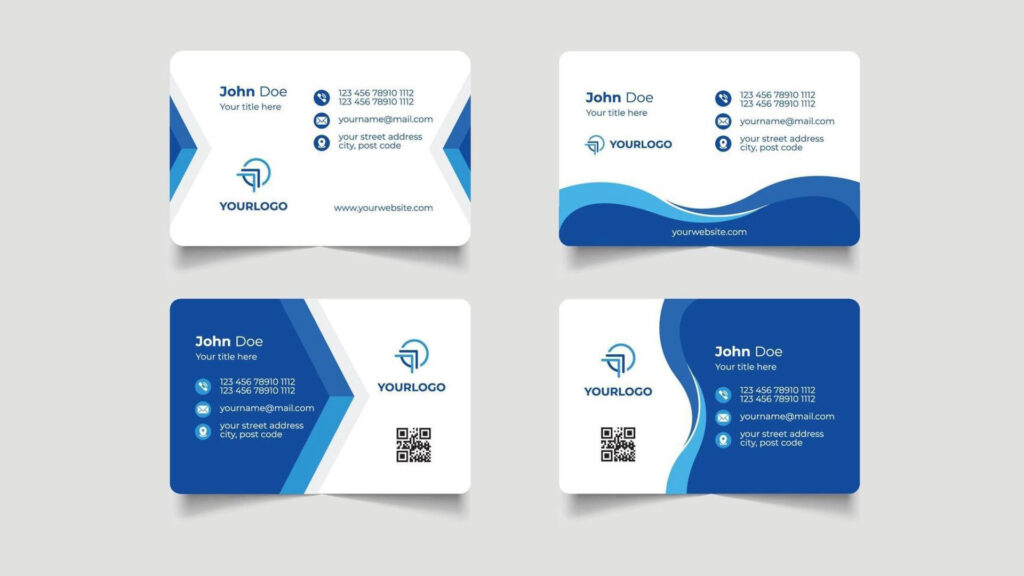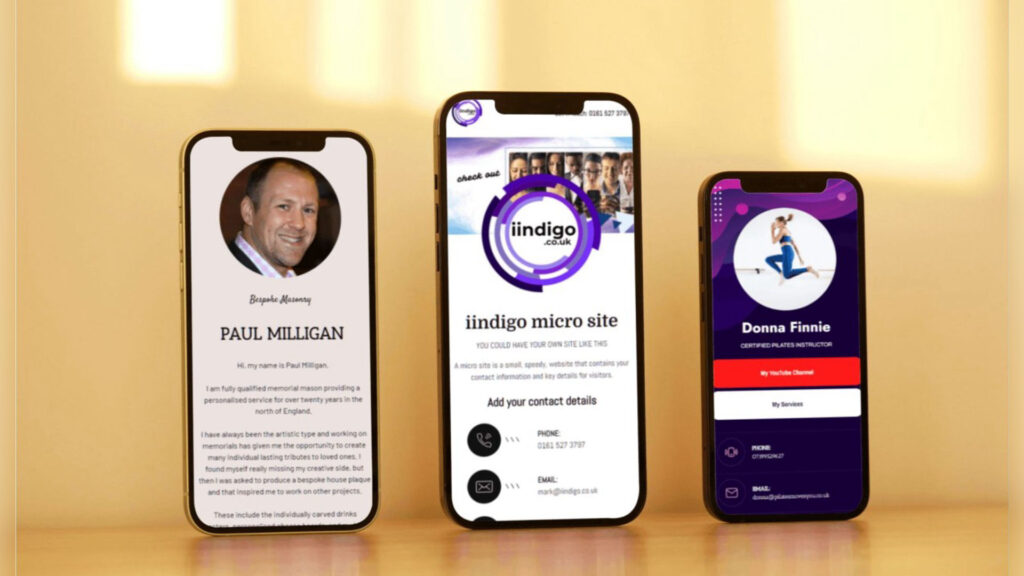Table of Contents
ToggleHow To Build Teamwork Spirit In Your Organization
In today’s competitive business environment, it’s no longer enough to just hire skilled employees. If your team isn’t working together, your business will always feel stuck — like a car with a flat tire.
So what really makes a group of individuals act like one strong, unified force?
It all comes down to one thing: teamwork spirit.
But building this spirit doesn’t happen by accident. You don’t just bring people into a room and expect magic. It takes effort, understanding, patience, and above all — leadership.
In this article, we’ll unpack what teamwork spirit really means, why it matters more than ever in Kenyan workplaces, and how you can build it in your own organization.
What Does “Teamwork Spirit” Actually Mean?
Let’s begin by getting clear on what we’re talking about.
Teamwork spirit isn’t just people working together. It’s a mindset. A shared energy that pushes each team member to support each other, take initiative, and celebrate wins together.
When there’s teamwork spirit, people don’t say “that’s not my job.” They jump in. They solve problems. They move with a sense of unity.
This doesn’t mean there won’t be disagreements or stress — those are part of any team. But a team with real spirit pushes through those challenges, not away from them.
Why Teamwork Spirit Matters More Than Ever
Whether you’re running a small business in Nairobi, managing a county project, or leading a corporate department, your ability to grow depends on your people.
And your people depend on each other.
Here’s why building a strong teamwork spirit is crucial:
-
Higher productivity: Teams with spirit waste less time on conflict and confusion. They get things done.
-
Better innovation: When people feel safe and supported, they share ideas more freely.
-
Lower turnover: Employees who feel like they belong are more likely to stay.
-
Improved customer service: Happy teams create happy customers.
-
Faster growth: When departments and individuals collaborate well, your business moves faster.
In short, teamwork spirit isn’t a luxury. It’s a foundation.
Signs Your Organization Is Lacking Teamwork Spirit
Before we dive into solutions, here are a few signs that your team might be struggling with unity:
-
People work in silos and avoid helping others
-
There’s gossip or frequent blame-shifting
-
Staff don’t celebrate each other’s achievements
-
Conflict is either avoided or poorly managed
-
Leadership is out of touch with team concerns
-
There’s low motivation or passive resistance to change
If any of those sound familiar, you’re not alone. Many businesses face these issues — and the good news is, they can be fixed.
Let’s explore how.
How to Build Teamwork Spirit Step by Step
1. Start With Trust
No team can function without trust. That’s the root.
You don’t build trust by demanding it — you earn it. Be transparent with your staff. Admit mistakes. Follow through on promises. Ask for feedback and actually listen.
Trust also grows when team members know each other beyond just job roles. Organize non-work interactions, even simple ones like tea breaks, monthly lunch meetings, or birthday shout-outs.
In Kenya, our social culture is strong. Leverage that to connect your people.
2. Create a Shared Vision
People pull together when they’re aiming at the same goal.
You need to clearly communicate what the team is working towards. What does success look like — for the quarter, the year, the project?
Don’t just talk about targets. Talk about impact. Help your team see how their effort contributes to a bigger picture — changing lives, growing communities, or solving real problems.
When your team feels part of something meaningful, they’ll work with more heart.
3. Define Roles Clearly — But Flexibly
Each person should know their responsibilities. When roles are unclear, work gets duplicated or ignored, and frustration grows.
At the same time, don’t be too rigid.
Encourage people to support each other across roles when needed. A team player says, “How can I help?” even when the task isn’t in their job description.
That’s where real teamwork spirit lives — in those moments of voluntary support.
4. Promote Open Communication
Silence is deadly for teamwork.
Create an environment where your staff can speak up — not just when things go wrong, but when they have ideas or need help.
Use team check-ins, suggestion boxes, or even informal WhatsApp groups. The format isn’t as important as the intention.
Be the kind of leader who invites communication, not avoids it.
5. Handle Conflict with Maturity
Conflict will happen. What matters is how you handle it.
Don’t sweep issues under the rug. When team members have disagreements, guide them toward resolution — not revenge or withdrawal.
Train your team (and yourself) in emotional intelligence: how to listen, stay calm, and resolve issues without making things personal.
A team that can fight fair is a team that can last.
6. Recognize and Reward Effort
Everyone wants to feel seen.
Make it a habit to appreciate your staff — not just with money, but with words, recognition, or simple thank-you gestures.
Celebrate wins together. Recognize both team achievements and individual efforts.
When appreciation is part of your culture, people give more. It’s human nature.
7. Lead by Example
You can’t build teamwork spirit if you don’t show it yourself.
As a leader, your team watches how you act — not just what you say. If you cooperate, support others, admit mistakes, and stay humble, your team will mirror that.
But if you isolate yourself, play favorites, or avoid tough conversations, your team will reflect that too.
Your culture starts with you.
Kenyan Case Study: A Small Business With Big Team Spirit
Let’s make this practical with a real-life example.
In Kisumu, a printing and branding company was struggling with delays, internal blame, and customer complaints. The owner realized that the problem wasn’t equipment — it was team culture.
He sat down with his six staff members and asked what was going wrong. It turned out people didn’t feel appreciated. Roles weren’t clear. There was no communication rhythm.
Over three months, they introduced:
-
A Monday morning check-in meeting
-
A staff lunch once a month
-
A WhatsApp group for celebrating weekly wins
-
Clear responsibilities on a whiteboard
Within 90 days, complaints dropped by 70%, delivery time improved, and staff morale shot up.
This is how small actions build big teamwork spirit.
The Long-Term Impact of Teamwork Spirit
Building a team isn’t a one-time event. It’s an ongoing effort — like tending a garden.
But the results are worth it.
Organizations that prioritize teamwork spirit enjoy:
-
Stronger employee loyalty
-
Easier problem-solving
-
Faster adaptation to change
-
Deeper customer trust (because happy teams create better service)
Whether you’re in retail, design, tech, manufacturing, or consulting — teamwork is your multiplier.
It’s not just about doing more. It’s about doing it together.
How To Build Teamwork Spirit In Your Organization
Every Kenyan business owner knows this: you can’t build anything great alone. Whether you’re running a hardware shop in Eldoret, a digital agency in Nairobi, or a hotel in Mombasa, your success always comes down to one thing — the people you work with and how well they work together.
That’s where teamwork spirit comes in. It’s the unseen energy that turns ordinary employees into problem-solvers, that makes people stay late to meet a deadline without being asked, and that keeps your workplace from turning toxic during hard times.
But here’s the truth — teamwork doesn’t just happen. You don’t build a strong team by hiring smart people and hoping for the best. You have to be intentional. And in this guide, I’ll show you exactly how to create a culture where teamwork becomes natural — not forced.
Let’s get into it.
What Is Teamwork Spirit, Really?
Teamwork spirit is not just about people doing tasks together. It’s deeper than that.
It’s about:
-
Trust: Knowing your colleagues have your back.
-
Respect: Listening to each other, even when you disagree.
-
Shared goals: Everyone working toward the same mission.
-
Support: Helping out when someone is overwhelmed.
When you have strong teamwork spirit in your business, even the impossible starts to feel achievable.
But when it’s missing? You’ll start noticing gossip, finger-pointing, poor results, and staff turnover — and eventually, the business suffers.
Why It Matters in Kenyan Workplaces
Let’s not pretend — the Kenyan work environment can be tough. Employees often feel underpaid, overworked, and unappreciated. On the other hand, many business owners feel frustrated by “lazy” or “entitled” workers who don’t seem to care.
Both sides are tired. And that’s why building a genuine sense of teamwork spirit is more important than ever.
When people feel like part of a team, they give more. They stay longer. They solve problems. They come up with ideas. They carry the business when you’re not around.
That’s not just good HR — that’s smart business.
Signs Your Team Lacks Teamwork Spirit
Before we fix the problem, we need to see it clearly. Here are some red flags to look for:
-
People avoid responsibility or blame others.
-
There’s tension or silence during meetings.
-
Staff complain often or seem disconnected.
-
No one volunteers to help unless forced.
-
Projects are done just to finish — not to impress.
-
Your best people leave too soon.
If you recognize some (or all) of these, don’t panic. You’re not alone. Even great businesses go through this. The key is to act before the culture becomes toxic.
How To Build Teamwork Spirit That Actually Lasts
Now let’s dive into the practical stuff. Here are the strategies that work — whether you run a small business with five people or a big company with fifty.
1. Create Shared Purpose (And Talk About It Often)
Don’t assume your team knows why they’re doing what they do.
Every business has a deeper mission beyond profits. Maybe you help young people learn skills. Maybe you create beauty in people’s lives. Maybe you make transportation easier for families.
Whatever it is, speak it out often.
When people know they’re part of something meaningful, they work harder — not because they have to, but because they want to.
2. Make Time For Real Conversations
You can’t build teamwork spirit by only talking about work.
Take time to connect as people. Ask about someone’s family. Celebrate birthdays. Notice when someone looks down and check in.
One small act of kindness can change how a person shows up for the entire team.
It doesn’t cost anything to care. But the return is massive.
3. Stop Micromanaging and Start Trusting
Trust builds confidence. Micromanaging kills it.
Train your team, give clear expectations — then let them own their responsibilities.
Let someone take charge of the shop’s layout, or the social media page, or customer follow-ups. Step back and let them grow.
Mistakes will happen, yes. But so will creativity, independence, and growth.
And when people feel trusted, they become more loyal.
4. Celebrate Wins Together
Don’t just focus on what’s going wrong.
When someone does a good job, say it. When the team hits a sales target, celebrate it. Even small wins matter.
A simple “Well done team” in your WhatsApp group can lift spirits more than you imagine.
Celebrating builds pride. And pride builds commitment.
5. Deal With Conflict Early — And Fairly
No team is perfect. Conflicts will come up. What matters is how you handle them.
Don’t ignore tension. Don’t gossip behind backs. Sit people down. Talk. Listen. Guide them to a solution.
And stay neutral. The goal is unity — not punishment.
When people see that conflicts are handled with wisdom, they feel safer and more willing to speak up in the future.
6. Lead By Example
You can’t preach teamwork spirit if you don’t live it yourself.
If you show up late, speak rudely, or avoid responsibility, your team will follow your lead.
But if you work hard, listen, support others, and stay humble — your culture will follow you.
Culture flows from the top. Be the kind of teammate you want others to become.
How to Keep The Spirit Alive As Your Business Grows
Building teamwork is step one. But how do you keep it alive — especially when you start hiring more people, or your team becomes remote or scattered?
Here are some tips:
-
Have team check-ins weekly or bi-weekly — not just for updates, but to check on people.
-
Revisit your values every few months. Keep your mission visible on the wall, your website, or in team chats.
-
Train your managers to lead with empathy, not fear.
-
Encourage peer recognition — let team members shout out each other’s wins.
-
Create rituals — whether it’s Friday lunch, morning prayers, or end-month tea. Familiar routines build belonging.
Remember: culture is a living thing. If you don’t feed it, it dies.
How Leadership Styles Affect Teamwork Spirit
The kind of leader you are deeply influences how your team works together. Leadership is not a one-size-fits-all affair. In Kenya, especially in small and mid-sized businesses, many leaders take on multiple roles: owner, manager, HR, accountant — and sometimes therapist. But regardless of the hat you wear, your leadership style sets the emotional tone.
Let’s look at how different styles impact teamwork:
1. Authoritative Leadership
This type of leadership can deliver quick results when there’s a crisis. But if used too often, it can stifle creativity. Employees may feel like their voices don’t matter. That kind of environment doesn’t nurture teamwork spirit — it produces silence and fear.
2. Participative Leadership
This style encourages input, values opinions, and invites feedback. It’s not about making everyone a boss. It’s about creating a sense of inclusion. People support what they help build. Teams led by participative leaders often show more cooperation and loyalty.
3. Transformational Leadership
This is about inspiring your team through a shared mission. You don’t need a TED Talk to do this. You just need to remind people why their work matters, set goals that excite them, and cheer them on consistently.
When employees trust their leader, they’re more likely to trust one another. And when there’s trust, teamwork spirit becomes second nature.
Teamwork in Remote or Hybrid Environments
Many businesses in Kenya are exploring remote work — whether in tech startups in Nairobi or social media teams managing clients from anywhere. But distance can make people feel isolated, which hurts team cohesion.
So, how can you maintain that sense of unity when the team isn’t always under one roof?
1. Regular Video Check-ins
Even a 15-minute weekly video call can bring faces back into focus. Use it to catch up — not just report numbers.
2. Virtual Collaboration Tools
Google Docs, Slack, and Zoom aren’t just for global companies. Use them to create a rhythm of communication and collaboration.
3. Celebrate Wins Online
Finished a big client project? Landed a new partnership? Celebrate it in the team group. Make people feel seen, even from a distance.
Remote teams need just as much human connection — they just get it through screens. Building teamwork spirit in such settings requires effort, but it pays off in loyalty and results.
Avoiding Common Pitfalls That Kill Teamwork
Not every team thrives, even with the best intentions. Sometimes, it’s the small habits that slowly chip away at unity. Here are some to watch out for:
1. Playing Favorites
Nothing kills morale faster than unfair treatment. Whether it’s giving certain people better shifts, lighter workloads, or constant praise, favoritism creates tension. Treat everyone fairly — not necessarily equally, but fairly.
2. Poor Communication
Assumptions are the enemy of teamwork. Always clarify roles, goals, and expectations. If someone feels confused or left out, they start pulling away from the group.
3. Ignoring Conflict
When team members clash, don’t just say “they’ll sort it out.” Step in early, mediate if needed, and find solutions. Unresolved conflict grows quietly and eventually explodes.
4. Overworking Your Best Performers
If someone is reliable, it’s tempting to give them more. But burnout is real. Balance workloads, or you risk losing your best people — and the trust of the rest.
Avoiding these mistakes helps protect the foundation of your teamwork spirit and ensures growth doesn’t come at the cost of your culture.
What Team Members Can Do to Support the Spirit
Teamwork isn’t just the manager’s job. It’s a shared responsibility. If you’re an employee, intern, or junior staff member, here’s how you can contribute to the team’s success:
-
Show up on time. Consistency builds trust.
-
Ask, “How can I help?” even when it’s not your role.
-
Share ideas, even small ones. Innovation often comes from unlikely places.
-
Offer encouragement to teammates, especially during tough weeks.
-
Own your mistakes. It’s easier for people to trust you when you’re honest.
Teamwork spirit thrives in places where everyone, regardless of their role, shows up with humility and effort.
How Teamwork Spirit Builds Long-Term Business Value
If you’re still wondering whether focusing on internal culture is worth it, think about this:
In Kenya, where word of mouth still drives a huge percentage of sales, your team becomes your ambassadors. How they treat clients, how they represent your business, how they talk about the workplace — all of it shapes your brand.
Here’s what a healthy teamwork culture contributes to long-term business success:
-
Stronger Employer Brand: People want to work where they’re valued. When word gets out that your business is a great place to work, top talent will come to you.
-
Higher Retention Rates: Replacing employees is costly and time-consuming. A team that feels respected and engaged is more likely to stay — and stay motivated.
-
Better Innovation: Collaboration leads to ideas. Those ideas lead to better systems, more efficient workflows, and creative marketing strategies.
-
Sustainable Growth: Scaling is easier when the foundation is strong. A business with a committed team can grow faster without constantly fixing internal drama.
Your team is your business’s most valuable asset. When you protect and empower that asset, you protect and grow your bottom line.
Final Thoughts
Teamwork spirit is not a buzzword. It’s a real, measurable force that drives performance, loyalty, and business growth.
And the best part? It doesn’t require a big budget or fancy perks.
It just takes leaders who care, communicate, and commit to building a positive culture from the inside out.
Start today — even with one small shift. Maybe it’s saying thank you more. Listening more. Having a quick morning huddle.
Those small seeds will grow into a spirit your entire team can feel — and your customers will notice it too.
























































